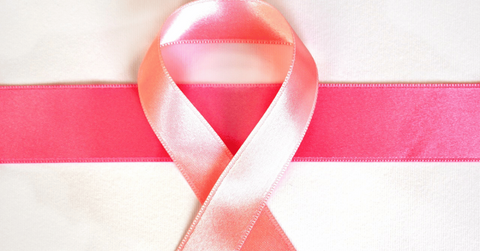Knowledge Is Power: Breast Cancer Awareness Drives Proactive Health Decisions

Oct. 2 2024, Published 3:00 a.m. ET
Every October, for almost 40 years, Breast Cancer Awareness Month has served as a yearly call to action in the fight against breast cancer. For some, it’s an opportunity to raise funds for breast cancer education and research. For others, it’s a chance to take part in the international health campaign to promote screening and prevention of the disease.Yet some also see it as a painful reminder of the disease that touched their lives, whether through the loss of a loved one or the enduring battle of the survivor.
Breast Cancer Awareness Month began in 1985 when the American Cancer Society partnered with Imperial Chemical Industries to host a week-long awareness campaign.What started as a week-long event soon became a month-long campaign of action as survivors and their families took up the call to spread awareness of this deadly disease.The symbolic pink ribbon quickly became the widely recognized sign of breast cancer awareness and brought greater attention to the cause.
As communities rally and men and women alike come together to raise awareness of this tragic disease, it’s important to acknowledge the power that these awareness campaigns have to save lives.Education is the best tool to encourage preventative measures and alert the public to the risks of the disease.In order to fight and prevent breast cancer, one has to truly understand the risk factors and which steps can be taken to detect it before it has a chance to spread.There are many ways to lower the risk of breast cancer, such as avoiding or limiting alcohol, maintaining a healthy weight and exercise routine, and avoiding smoking.Yet other risks are out of one’s control, such as a family history of the disease.
Predisposition to cancer can be inherited, but even those without a family history of breast cancer can still inherit traits that make them susceptible to the disease.One major risk factor is a BRCA gene mutation, which occurs when the BRCA 1 (BReast CAncer gene 1) or BRCA2 (BReast CAncer gene 2) genes lack the ability to repair damaged DNA.Over 60% of the women who inherit a mutated BRCA gene will develop breast cancer in their lifetime, a huge increase compared to the 13% rate of women in the general population.BRCA gene mutations can affect men as well, putting them at greater risk of breast, prostate, and pancreatic cancers.
A hereditary cancer panel can detect a BRCA gene mutation as well as a host of other potential cancer risk factors.This makes genetic screening another powerful tool in the arsenal of breast cancer prevention.Not only can it determine whether or not one is at greater risk of developing cancer, it can also empower individuals with the knowledge they need to make proactive health decisions.As Breast Cancer Awareness Month progresses, there’s been a major awareness campaign led by genetic screening companies like Jscreen, a national non-profit public health initiative dedicated to preventing genetic diseases and cancer.Jscreen is one of several genetic testing companies that provide at-home access to DNA testing and genetic counseling services.

Breast Cancer Awareness Month has done wonders to spotlight the need for annual screenings for women 45 and older.As genetic screening continues to advance, it’s quickly becoming an essential preventative tool to help women determine their cancer risk and take steps to avoid the spread of the disease.This Breast Cancer Awareness Month is a welcome opportunity to educate the public on the serious danger of breast cancer and the lifesaving benefits of proactive genetic screening.


